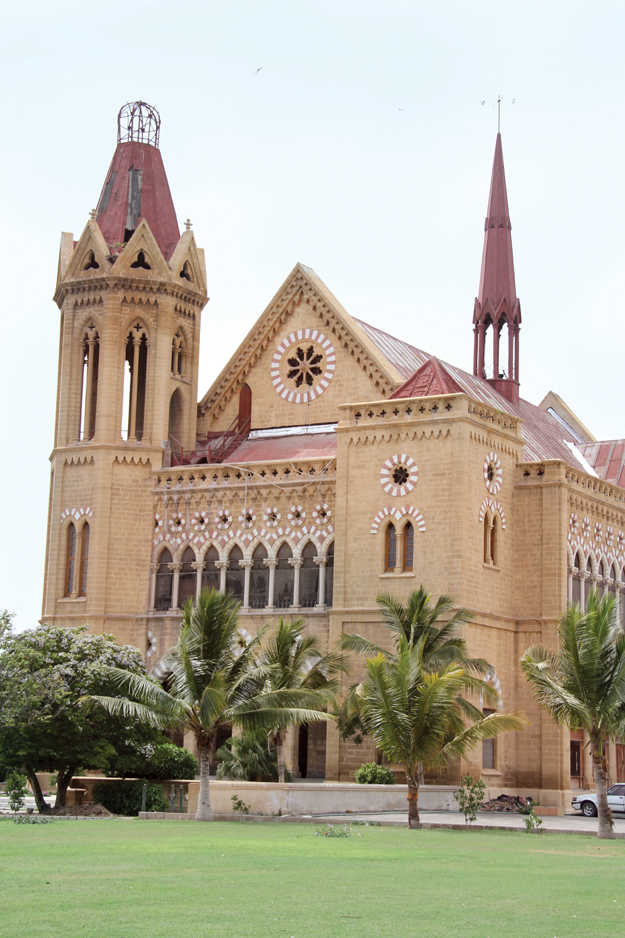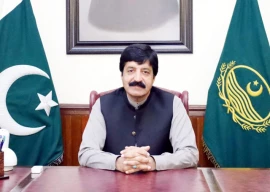
The laboratory has cutting-edge machines, a designated fumigation space, scanners and abundant chemicals for the preservation of paper. One of the side pillars has a frame attached to it that reads ‘Different Steps for the Preservation of Paper’.
The flow chart states that a paper has to undergo various pH testing, acid dipping and a deoxidation process to render it fit for record-keeping. It has workstations to accommodate eight people at a time.
But for all of its equipment, resources and fancy gimmicks, it fails at its job.
The Sindh Archives Department, operating under the Information and Archives Department, Government of Sindh, is responsible for the preservation of papers, maps, documents, manuscripts, gazettes, journals, newspapers and book collections and the recording of Sindh’s history.
So far, it only houses records from 1820 to 1936. This material was largely recorded in the mid-1800s by the office of the commissioner under the British Raj. During that time, the commissioner in Sindh was the designated Chief Officer of the province. It was in 1937, when Sindh was separated from the Bombay Presidency, that Sindh achieved its autonomous status and the commissioner’s office ceased to be the key office in the province.
According to Sindh Archives Department deputy-director Makhdoom Zulfiqar, the department deals with material that dates back a minimum of 30 years. “There is no proper method for keeping post-Partition documentation. We have material from the offices of the commissioner from 1820 to 1936. You may, however, find a few newspapers from the post-Partition era,” he told The Express Tribune.
A few news clippings remain, including one from March 4, 1949 with the headline, “What should India’s national language be” and another excerpt from Deccan Times “Karachi Municipality Proposed Government Scheme II” from Sep 10, 1949.
But other than this there is little, if any, presence of post-Partition material or even trace elements from the 1970s and 1980s save for a few book collections of former prime minister Zulfikar Ali Bhutto and other prominent personalities. “We don’t hold any record from the present or even the close past. You may find them at the office of the board of revenue and the commissioner’s office but not here,” said Zulfiqar.
However, the commissioner’s office does not hold any such records, according to commissioner Shoaib Ahmed Siddiqui, who claimed that his office only keeps land records. “Only the records for town planning and constructions are held by the Karachi Metropolitan Corporation (KMC).”
The KMC’s records are kept by the Archives and Research Department at the KMC building but here too, chaos prevails. In unruly piles of papers lie some documents that date back to the British Raj. According to director Adnan Qureshi, finding such material in the mess from time to time is not uncommon.
Anything that outdates independence is kept, while other documents that look important are also preserved. “We have some maps dating back to 1874 and also a few architectural plans from the early 1990s but nothing is kept in any order,” he explained.
All town planning copies need to be sent to the KMC, to the commissioner and to the Sindh Archives Department, but Qureshi says even expecting people doing so is ‘idealistic’.
Others, such as the Sindh Information and Archives Secretary Zulfiqar Ali Shalwani or Information Minister Sharjeel Memon, either claim they do not want to talk about this or are too busy to do so. In the meanwhile, Karachi and Sindh’s history keeps fading away as the days go by — lost irrevocably to the sands of time and the mismanagement of the authorities.
Published in The Express Tribune, April 26th, 2015.

















COMMENTS
Comments are moderated and generally will be posted if they are on-topic and not abusive.
For more information, please see our Comments FAQ